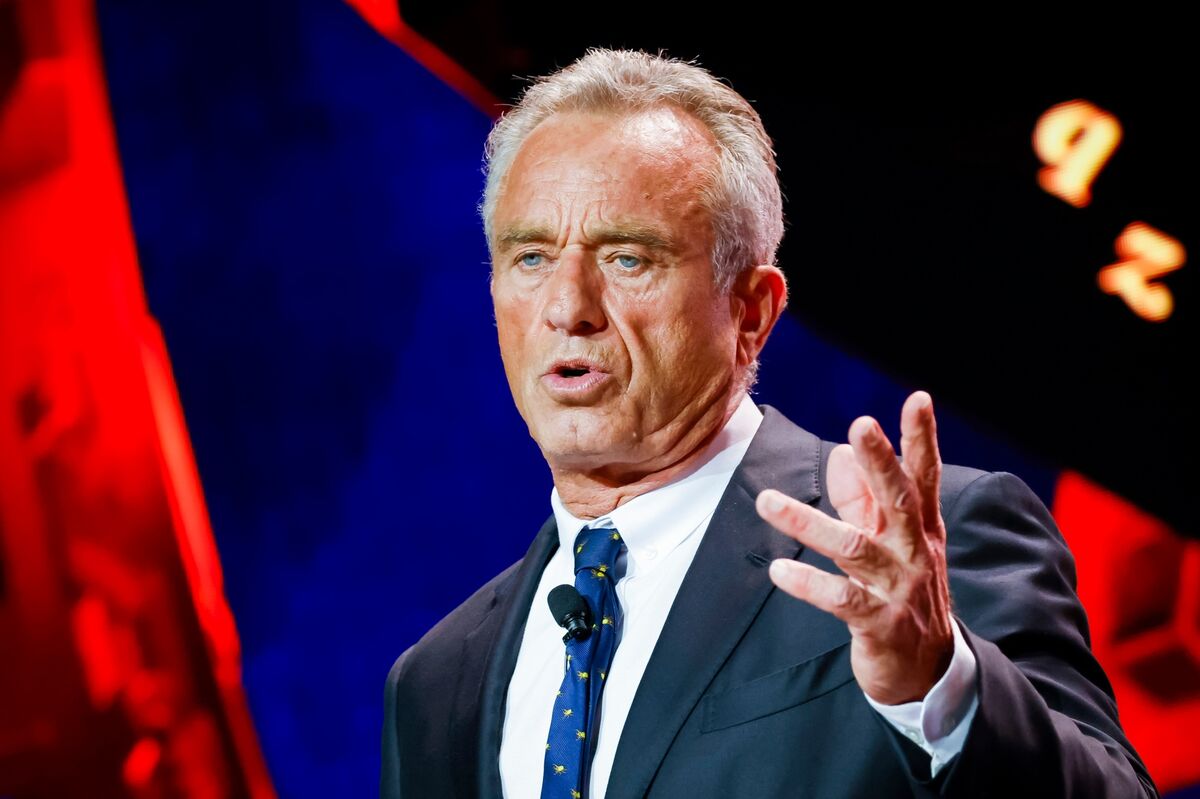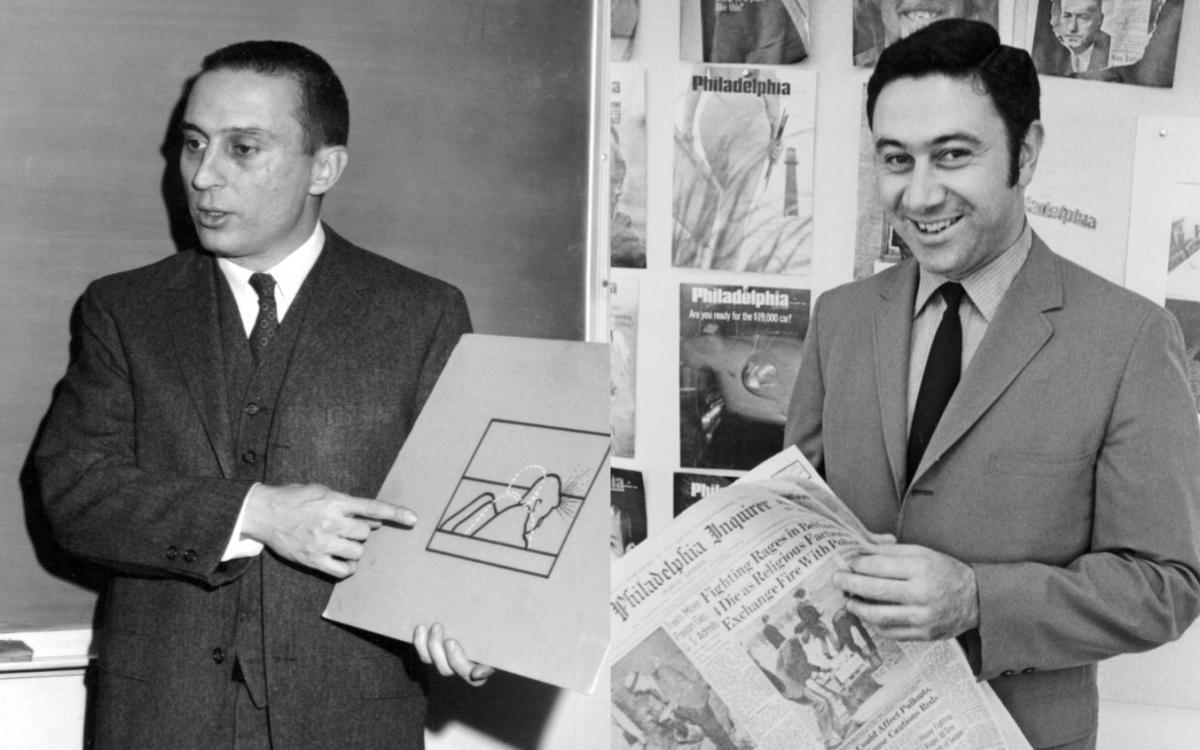Robert F. Kennedy Jr. Carries the Torch
The presidential candidacy of Robert F. Kennedy Jr. is hard to read, given the division within his own family, but one positive effect is already apparent. He is calling attention to the CIA’s role in the assassination of his uncle, President John F. Kennedy. It may lead to something rare in today's climate: The truth.

Robert F. Kennedy Jr.
Kennedy gives confirmation of what this writer and most of those who have followed this crime since it happened in the 1960s have long believed. There is no doubt that the CIA was involved in both the execution and the decades-long cover-up. And that may be the principal reason we have never seen all the documents locked away in government vaults. Successive administrations, even after they promise to release information, apparently decide the truth is too damaging to our intelligence community to admit. And while it delays, most of those prominent in researching that historic murder have died, along with those who actually authorized or committed the crime.
As a bit player from the first challenges to the Warren Report in the 1960s, we have intense interest in anything a Kennedy says about the assassination. At the time of JFK’s murder, the Kennedys were notably quiet. Both Robert and Ted Kennedy issued identical statements about the Warren Commission report which concluded that Lee Harvey Oswald was the lone assassin. Both said they had not read the report but had no reason to question its conclusion.
We have since learned that the brothers knew more than they said at the time. Within days of JFK’s murder, Bobby Kennedy through private channels got word to the Soviet Union’s Nikita Krushchev that he knew the Soviets were not involved – that this was a domestic murder. And RFK quietly followed events relating to his brother’s death – such as the highly publicized work of New Orleans district attorney Jim Garrison, who uncovered suspicious individuals linked to the CIA but ultimately resulted in the acquittal of the man he accused of being part of a plot.
There aren’t many people left who were close to the original assassination doubters. We became one accidentally shortly after the Warren Commission Report in 1965. Our colleague at Philadelphia Magazine, Gaeton Fonzi, was contacted by a Philadelphia school board lawyer named Vincent Salandria who was one of the few people who had actually read the 26 volumes of the report.

Vincent Salandria, left, advised Gaeton Fonzi on his mission to get to JFK truth.
We sat in on Fonzi's first meeting with Salandria. A gaunt, unnervingly intense man, he pointed out the glaring inconsistencies in the Warren report regarding the wounds to JFK. He showed how “the single bullet theory” that had been conceived by Philadelphia attorney Arlen Specter, later a U.S. Senator, was impossible. The whole Warren Commission Report hinged on that element.
After presenting his compelling case, Salandria said, “Don’t you see it, boys, don’t you see it? There’s only one outfit who could have pulled this off.”
He meant, of course, the CIA. Fonzi was doubtful about going that far – until he interviewed Arlen Specter – and was shocked that he could not explain his own single bullet theory. Fonzi wrote as much in Philadelphia magazine and followed up with other articles. Fonzi’s Philadelphia work caught the attention of Richard Schweiker, who later as a U.S. Senator was a key figure in reopening the investigation of JFK’s death in the mid-1970s. Schweker hired Fonzi to look into CIA/anti-Castro activity in South Florida. He was convinced that Oswald was more than a lone gunman, saying he “had the fingerprints of intelligence all over him.”
Fonzi by this time was a partner in our Florida Gold Coast Magazine. He took the assignment confident that the assassination would be solved, especially when Richard Sprague, a brilliant and hard-nosed Philadelphia prosecutor, was selected to head the investigative committee. But Sprague quickly ran into trouble when he refused to sign a secrecy agreement with the CIA. He was in fact investigating its connections to Oswald. Right-wing politicians ganged up and forced Sprague to resign. To Fonzi, that was further proof that the CIA had something to hide.
He had already fulfilled Schweiker’s hunch that South Florida might be fertile ground. A prominent Miami anti-Castro leader, Antonio Vecianna, not knowing Fonzi was on the JFK case, casually told him he had seen Oswald in the company of his own CIA handler in Dallas not long before the assassination. Fonzi was stunned and pushed hard to discover that the CIA man, who used the alias Maurice Bishop, was actually David Atlee Phillips, a high-ranking CIA officer who was coordinating people involved in anti-Castro plots.
Despite the importance of his CIA discovery, Fonzi was ordered to spend time checking out possible Mafia involvement, which he could never establish. CIA operatives, notably Frank Sturgis of Watergate fame, made a game of sending him on time-consuming wild goose chases with tantalizing but bogus information that eventually led to CIA tricksters. Fonzi often worked out of our Gold Coast office so we followed his every step over several years.
He was disappointed in the committee’s final report, which he helped write. It did say JFK’s death was a conspiracy but was vague about the nature of the conspiracy. He decided to write a dissenting opinion. “The Last Investigation” first appeared in three installments in Gold Coast Magazine and a cover story in Washingtonian magazine. It detailed his findings about the CIA, including its motive. It represented a deep state that hated Kennedy, considering him a traitor who wanted to lessen tensions with the Soviets and wanted us out of Vietnam. These articles resulted in a lawsuit against the Washingtonian, which it won, but received little press at the time. However, the book has gone through several printings, and the New York Times has called it one of the best books on the assassination.
Fonzi’s work has influenced other researchers over the years. Mentioning all their revelations is too long and complex to appear here, but several government agencies were clearly involved. For starters, the disgraceful Warren Commission was never run by Chief Justice Earl Warren. It was controlled by Allen Dulles, the ex-CIA chief who had been fired by JFK after the Bay of Pigs fiasco. The very man who should have been investigated ran the investigation. He was helped by the FBI, under J. Edgar Hoover, no fan of the Kennedys, whose bureau withheld important information from the Warren Commission, including CIA connections regarding Jack Ruby, the man who murdered Oswald. And even the Secret Service was negligent in taking usual precautions for protecting the president and seemed a partner in the subsequent cover-up. Talk about a wide conspiracy. As Vince Salandria said in 1965, “There’s only one outfit that could have pulled this off.”
There aren’t many of us still around who had early exposure to the important critics of the JFK assassination. Just about all the people mentioned in this essay are gone. But we assume that Robert Kennedy is familiar with all these details and a lot more. Through necessity, the torch has been passed to a new generation. And Robert F. Kennedy Jr. is not a bad torch bearer.

Hi Bernie!
This Comment had been Posted by Lawrence V Amaturo
Just finding news of your sale, Bernie (congratulations!) and your blog. I'm in my 28th year in Sonoma County California but of course stay close to my Ft Lauderdale roots and recently hosted my dad's 100th birthday. Like you, he's a South Florida "institution". If you'd like, I'll fill you in on the day All my best, Lawrence Amaturo